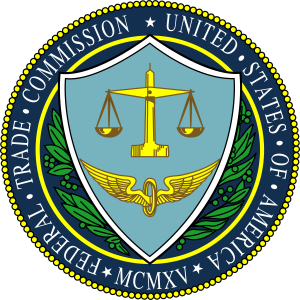
FTC Approves New Rule Provisions Under The CAN-SPAM Act
On May 12th, 2008, the Federal Trade Commission approved four new rule provisions under the Controlling the Assault of Non-Solicited Pornography and Marketing Act of 2003 (CAN-SPAM or the Act). The provisions are intended to clarify the Act’s requirements.
If you or your business sends bulk email you should be aware of these changes to the FTC rules regarding SPAM. I’ve provided some translations from legal speak to regular southern English where necessary. I’m not an attorney, so don’t take my comments as such! These new rules will not affect most legitimate businesses; however, if you send bulk email, it’s a good idea to be aware of the rules so that you don’t mistakenly violate them and end up getting fined, jailed, or both.
The new rules are:
- An e-mail recipient cannot be required to pay a fee, provide information other than his or her e-mail address and opt-out preferences, or take any steps other than sending a reply e-mail message or visiting a single Internet Web page to opt out of receiving future e-mail from a sender; Fred’s translation: make it easy for someone to opt out of your email list, use a clickable link for example that just does it. Don’t make them jump through hoops. I’m pretty sure this makes requiring a login and/or password to opt out a violation.
- The definition of “sender” was modified to make it easier to determine which of multiple parties advertising in a single e-mail message is responsible for complying with the Act’s opt-out requirements; Fred’s translation: the person in the “from” address is considered the sender of the email and must comply with the FTC CAN-SPAM rules for opt out links, physical address, etc.
- A “sender” of commercial e-mail can include an accurately-registered post office box or private mailbox established under United States Postal Service regulations to satisfy the Act’s requirement that a commercial e-mail display a “valid physical postal address”. Fred’s translation: you can use a P.O. box now.
- A definition of the term “person” was added to clarify that CAN-SPAM’s obligations are not limited to natural persons. Fred’s translation: unnatural persons now have to follow the rules too! This includes businesses, groups, non-profit organizations, BigFoot, etc. So you unnatural persons, and you know who you are, shape up!
In addition to these rule changes, they also issues additional opinions that may become rules, or changes to the rules, in the future:
- CAN-SPAM’s definition of “transactional or relationship message”; the Commission’s decision not to alter the length of time a “sender” of commercial e-mail has to honor an opt-out request; Fred’s comment: current length is 10 days.
- The Commission’s determination not to designate additional “aggravated violations” under the Act; Fred’s comment: stop bugging the crap out of ’em.
- The Commission’s views on how CAN-SPAM applies to forward-to-a-“friend” e-mail marketing campaigns, in which someone either receives a commercial e-mail message and forwards the e-mail to another person, or uses a Web-based mechanism to forward a link to or copy of a Web page to another person. The SBP explains that, as a general matter, if the seller offers something of value in exchange for forwarding a commercial message, the seller must comply with the Act’s requirements, such as honoring opt-out requests. Fred’s translation: refer a friend emails and related ways to get email addresses added to your list should also follow the same rules for providing opt out links, physical address, etc.
Here’s the link to the document on the FTC’s web site: http://www.ftc.gov/opa/2008/05/canspam.shtm.
If you’re not sure what these new rules mean or how they affect you or your business, then please consult with a legal professional.
Until Next Time,
Fred

 [addtoany]
[addtoany]